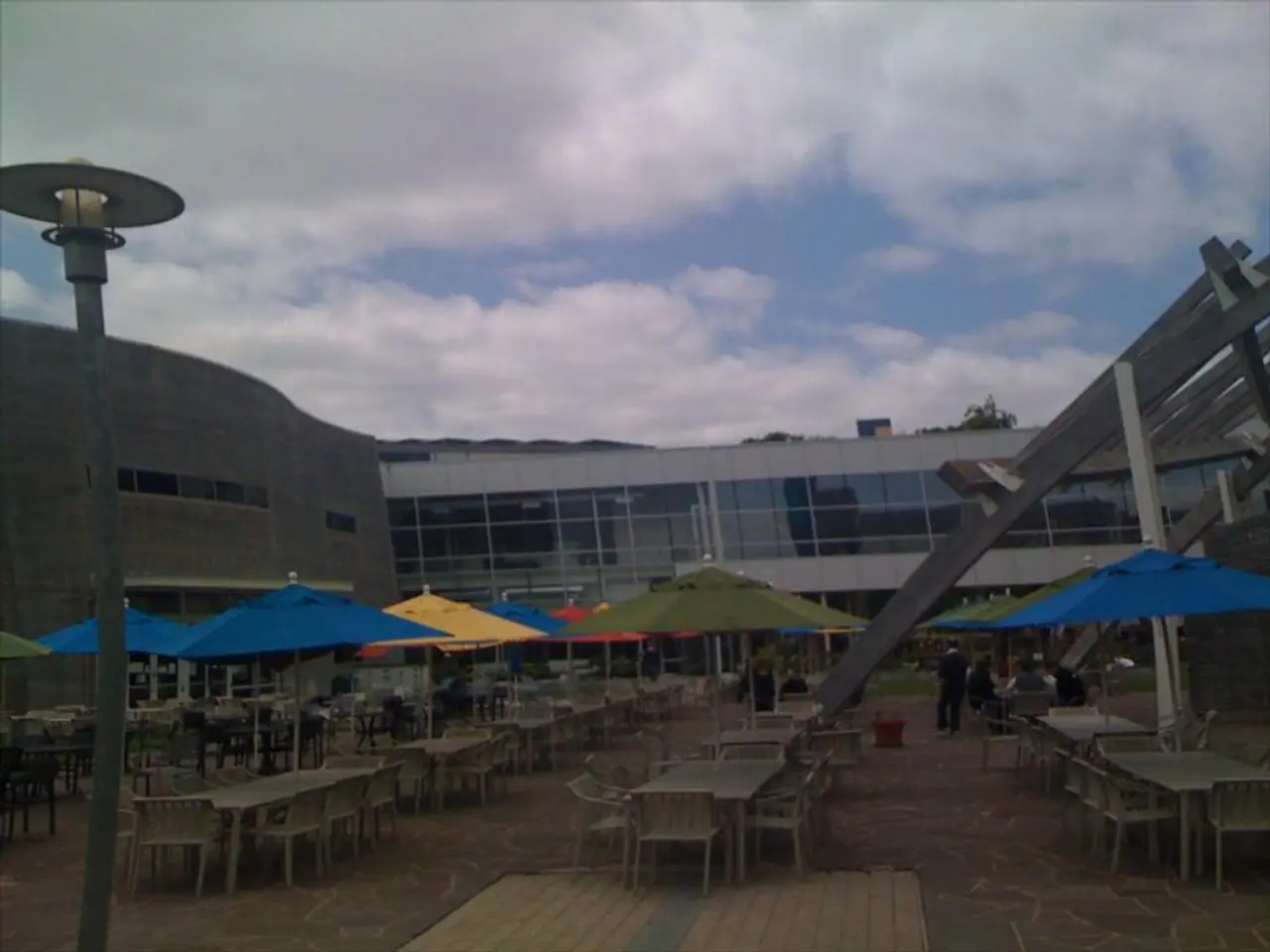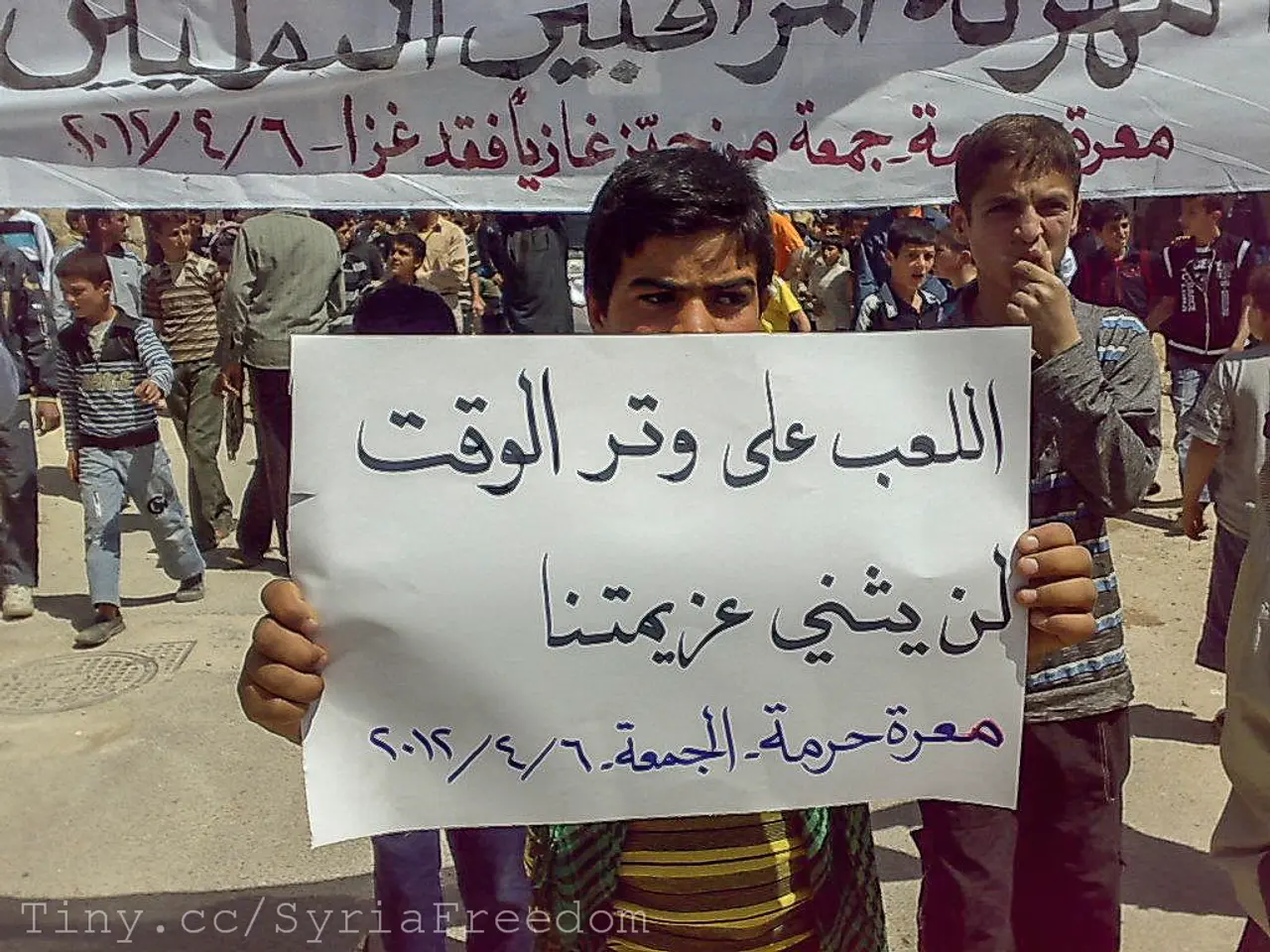Taiwanese military planning revealed through physical training simulations
In a recent exercise, participants simulated responses to a hypothetical crisis involving a Chinese blockade of Taiwan, with discussions on unified action through ASEAN and negotiating special air and sea corridors with mock delegates from the US, China, and Japan.
The two-day event, held at a Singapore hotel, was attended by serving and retired Asia-Pacific region officials, military officers, security academics, and others. The exercise comes amid an escalating battle between the US and China for dominance in the Asia-Pacific region.
Singapore-Taiwan Military Ties
Singapore maintains unofficial, discreet military ties with Taiwan, serving as a strategic lifeline. Singapore conducts regular, long-standing military training exercises with Taiwan’s Republic of China Armed Forces, rotating up to 3,000 infantry troops annually through training camps in southern Taiwan. This cooperation has persisted despite diplomatic pressure from China and underscores Singapore’s intent to maintain strategic autonomy and a role as a trusted intermediary in cross-strait relations.
Beyond military training, Singapore also hosts and supports diplomatic dialogues between Taiwanese and Chinese officials, reflecting its delicate balancing act and unofficial role in cross-strait stability.
Contingency and Crisis Plans
Taiwan’s military focuses on modernizing its defense capabilities, including new U.S.-supplied weaponry, and conducting large-scale exercises like the 2025 Han Kuang drills to test readiness and crisis responsiveness. While these drills highlight Taiwan’s defense posture, they also expose gaps in civilian crisis management and evacuation plans, which could require regional cooperation in emergencies.
ASEAN Countries’ Practical Concerns
Southeast Asian nations such as Thailand, Cambodia, and Malaysia engage diplomatically with China to preserve regional peace and stability. China acts as a mediator in regional disputes, but there is no explicit evidence from the sources of formalized contingency plans with Taiwan or Singapore to counter a Chinese blockade.
China’s Naval Capabilities and Blockade Threat
China’s carrier strike groups and missile arsenal are designed to enforce a potential naval blockade around Taiwan and deter external military intervention, complicating any regional contingency operations by Taiwan or allies.
The Future of ASEAN-Taiwan Relations
Some military attaches and analysts suggest that any attempt by Beijing to seize Taiwan could start with a blockade, which would be considered an act of war under international law. The risks are felt acutely in Singapore, a financial and shipping hub that hosts US Navy ships and surveillance aircraft yet maintains strong cultural, diplomatic, and economic ties with China.
The Philippines has contingency plans for a Taiwan emergency, but the foreign ministries of Indonesia and Vietnam did not respond to requests for comment, and the Japanese Ministry of Defense declined to comment. University of Malaya Institute of China Studies director Ngeow Chow Bing wrote that Beijing has clear incentives to ensure that most, if not all, ASEAN members remain neutral in a Taiwan crisis.
Drew Thompson, a Senior Fellow at the S. Rajaratnam School of International Studies at Nanyang Technological University in Singapore, emphasized the importance of Southeast Asian countries building meaningful, unofficial ties with Taiwan, particularly its military, to engage effectively in a conflict. Southeast Asians account for about 94% of the almost 1 million foreign nationals resident in Taiwan. Singapore was able to leverage access to airfields and aircraft due to its discreet and decades-old security presence inside Taiwan.
The previously unreported exercise offers a rare window into contingency planning over Taiwan, which some military attaches and security analysts say is becoming increasingly necessary due to the potential for an assault on Taiwan by Beijing to draw in the US and imperil other countries.
- The exercise in Singapore, focusing on unified action during a hypothetical crisis involving Taiwan, underscores the importance of politics and general news in shaping regional responses to war-and-conflicts, as it involved mock delegates discussing special air and sea corridors with representatives from the US, China, and Japan.
- In the future, as China continues to enhance its naval capabilities and threaten a blockade of Taiwan, war-and-conflicts may become a reality, requiring practical concerns from ASEAN countries to be addressed in contingency plans, such as the potential need for special air and sea corridors, a topic discussed during the recent exercise in Singapore.








